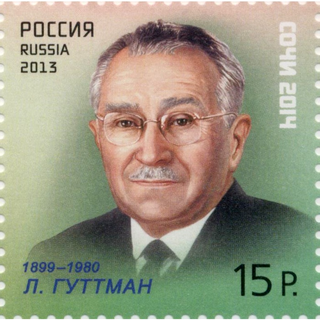Neuroscience
The Origin of the Paralympics
Part of the remarkable legacy of those who fled Hitler's Germany.
Posted August 19, 2021 Reviewed by Vanessa Lancaster
Key points
- On the eve of World War II, a group of psychiatrists and neurologists fled to Britain and made lasting contributions in many fields.
- In 1948 Ludwig Guttmann established the Stoke Mandeville Games believing that sports were vital to the recovery of injured soldiers.
- By 1961, 130 countries were sending paralympic athletes to the annual games; first held in parallel to the Summer Olympics in Rome.
As we watch the 2021 Paralympics next week, it’s good to remember their origin. It turns out that they were an outgrowth of several remarkable contributions to psychiatry and neurology made by physicians and scientists who fled Germany and Eastern Europe for Britain in the years immediately before World War II.
Because of the timeliness, we will begin with the story of Ludwig Guttmann, who is often referred to as the father of the Paralympics. In this two-part article, we will go on to others who contributed to the classification of psychiatric disorders, the development of stimulants, and the first modern tranquilizer.
Ludwig Guttmann (1899-1980): The son of an innkeeper and distiller in Upper Silesia (then part of Germany), Guttmann went to medical school, graduating in 1924. A decade later, while he was working as a neurosurgeon at the University of Breslau, he fell victim to the antisemitic Nuremberg Laws, losing his appointment and his standing as a physician, becoming what was known as a ‘Krankenbehandler’ (a doctor whose license has been taken away, but was permitted to care for Jews). In this capacity, he became the medical director of the Breslau Jewish Hospital.
After Kristallnacht on November 9, 1938, Nazi SA paramilitaries and civilians raided Jewish homes and businesses, Jews were being rounded up for transport to concentration camps. Guttmann told his doctors to admit anyone who wanted to come into the hospital regardless of their reason. Sixty-four patients were admitted.
The following day the Gestapo questioned him about each admission, and only four were sent to the camps; he had managed to save sixty people. A few months later, Guttmann was asked to go to Portugal to treat a friend of prime minister Antonio de Oliveira Salazar.
On the return trip through London, Guttmann escaped, along with his wife and two children. The family was settled in Oxford by a refugee program. As a refugee, Guttmann was not allowed to practice medicine, so he turned his attention to research, working in the Nuffield Department of Neurosurgery.
At the time, neural injuries were the most disabling form of non-lethal wounds. At the instigation of the British Army, a special program for studying nerve regeneration was formed at Oxford. Guttmann contributed to the group’s work on documenting the rate of regrowth of damaged neurons and making the important distinction between the growth of the nerve and the recovery of function, which was often some weeks later. The lab greatly contributed to understanding how regenerated nerve cells form functioning synapses to communicate with muscle cells. They also addressed practical issues such as the best sutures and graft materials, soon applied in human surgery.

In 1943, the Royal Air Force, concerned about the growing number of injuries to pilots during crash landings, asked Guttmann to lead the first British program devoted to spinal injuries at Stoke Mandeville Hospital.
He did so, becoming a British citizen in 1945 and remaining in this post until 1966. In addition to medical treatments, he was known for establishing the Stoke Mandeville Games in 1948, following his belief that sports were vital to the recovery process of injured soldiers.
Within a few years, 130 countries were sending paralympic athletes to the annual games, and in 1960 they were first held in parallel to the Summer Olympics in Rome. In 1961 he organized the English Federation of Olympic Sport. When he later passed away after a heart attack in 1980, he became known as a leader in founding sports for persons with disabilities.
Ernst Gutmann (1910-1977), a Czechoslovakian physician who had fled to Britain, and was first imprisoned, was assigned to work at the Oxford nerve regeneration laboratory. The staff, who did not know his background, put him to work cleaning the animal facilities. This unusual situation was quickly rectified; he became an integral part of the research team and was the lead author of one of their first and best-known papers, leading to new techniques for repairing damaged nerve tissue. In later years, he contributed to understanding aging on muscle physiology and endocrine effects on musculature associated with sexual activity.
Two decades after the war, Gutmann once again was to witness the occupation of his country. He taught in Czechoslovakia when the Soviets invaded in 1968, and he signed a petition denouncing their repressive measures. He and his wife were able to travel to Germany, where he was offered sanctuary in a professorship at the University of Konstanz. He declined, as he felt he would be abandoning his home university and friends. He resisted great pressure to sign a document removing his name from the petition and was castigated, losing most of his resources on his return. Having been a refugee once before, he now became a kind of ‘inner emigrant’.1 He continued to contribute to neuroscience research until shortly before his death in 1977.
The next section of this two-part blog will include a German psychiatrist who fled to Canada and played a crucial role in the clinical recognition of chlorpromazine as an antipsychotic, and a Czechoslovakian physician who found himself sleeping on London park benches, later discovering the first modern tranquilizer.
Portions of this article are excerpted from Trial by Fire: World War II and the founders of modern neuroscience and psychopharmacology.
References
Portions of this post were excerpted from Trial by Fire: World War II and the Founders of Modern Neuroscience and Psychopharmacology.
1. Vrbova, G. et al.: Ernest Gutmann (1910-1977). Neurological Research 30: 117-118, 2008.




